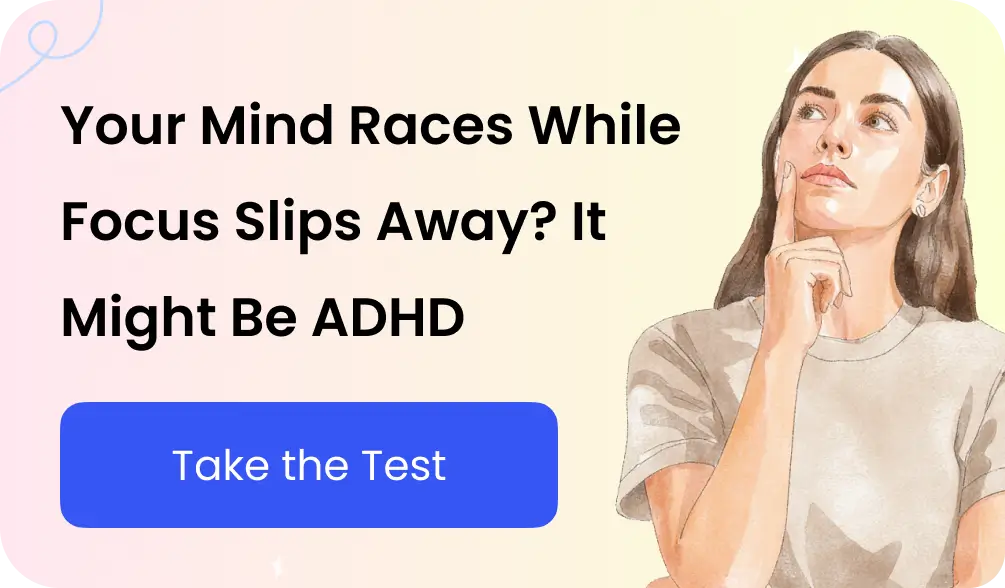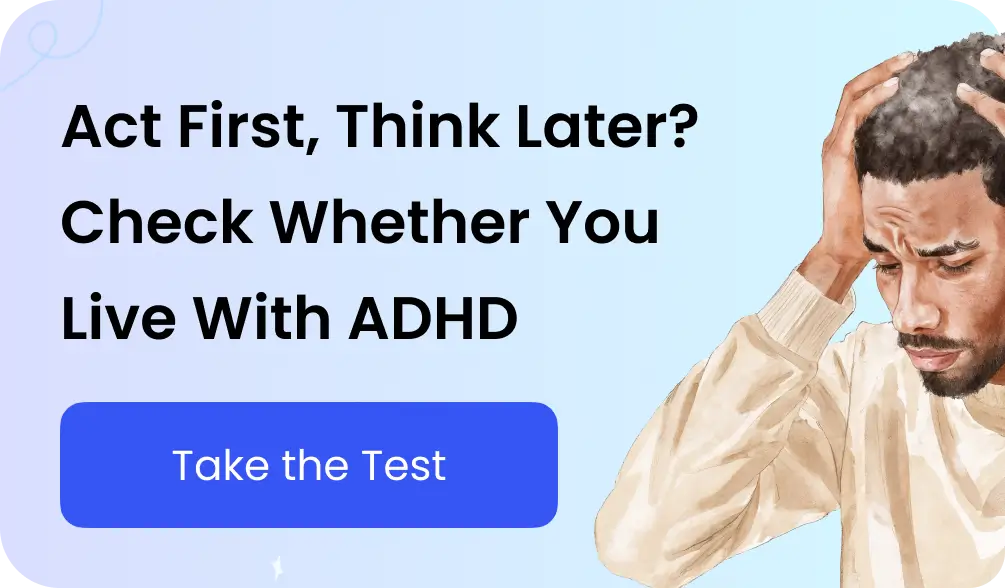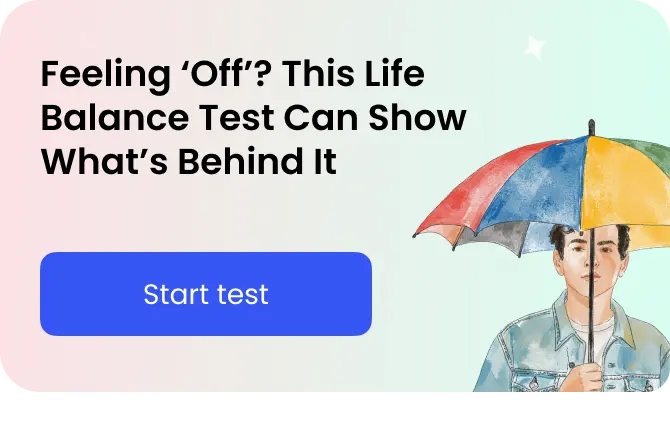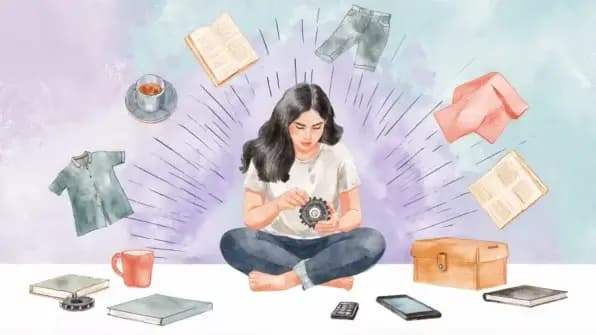It always happens at the most inconvenient time. Whether you need to do a work report, prepare for an important interview, or trying to finish an email you’ve been putting off for over a week. You get easily distracted and shift focus every single minute.
“Brain fog” makes even the simplest tasks feel overwhelming and challenging to tackle while you have trouble focusing on anything.
Everyone has probably experienced this situation at least once. However, some people live with a lack of focus, which can often turn their daily routines into significant challenges.
“Why can’t I focus and concentrate on anything?” This is the question we’ll try to answer in this article. Keep reading to find out why you may feel mentally blurred and what can influence your focus.
Lack of Concentration vs. Trouble Focusing
First, let’s identify the difference between two terms that may look almost similar.
Focus is the act of directing attention towards something. For instance, you can focus on cooking, work tasks, or watching a TV show.
Consequently, when you have trouble focusing on something, you want to do too many things at once. Doing laundry while watching a YouTube video and trying to respond to emails simultaneously is quite an inattentive and unfocused behavior.
Concentration is how long you can maintain focus on something and how much mental effort you need to put into it.
For example, if you can stay attentive at work for hours without breaks, drinking coffee, or chatting with colleagues, you likely have good concentration.
On the other hand, imagine that you take your phone every 10 minutes while watching a movie. The plot is exciting, but this inner urge to answer someone on WhatsApp is stronger. This means that you can’t concentrate.
4 Mental Health Conditions That Cause Lack of Concentration
It’s important to mention that difficulties with concentration are not exclusively related to mental health conditions.
So, before discussing daily aspects that may worsen concentration, let’s exclude the influence of some cognitive differences.
Attention-Deficit/Hyperactivity Disorder (ADHD)
Imagine that you’re going to write an essay. You turn on the laptop, open the necessary tab, check the task, and start writing. Maybe, after 40 minutes, you’ll decide to take a short break. But then you’ll get back to the essay and keep working.
This is what the routine of a person without ADHD looks like. On the other hand, people living with inattentive ADHD do tasks differently.
Again, you’re going to write an essay. You turn on the laptop, and… oh, several messages are on your email. Let’s answer them quickly. What were you going to do? Right, check the task. But it seems so boring.
You ask yourself, “Why can’t I focus?” and decide to make some coffee to get ready for work. While the kettle is boiling, you scroll TikTok — one more video… and one more.
Suddenly, you find yourself watching the second series of “The Queen’s Gambit” while drinking already cold coffee. Do you still remember the essay?
This is how navigating daily duties with ADHD might feel. People with attention-deficit/hyperactivity disorder usually have a low attention span, leading them to constantly shift focus.
Viviana Greco, PhD states, “Individuals with ADHD often have low levels of the neurotransmitter dopamine, which can contribute to symptoms of inattention, impulsivity, and hyperactivity.”
There are also other manifestations of this cognitive difference that might lead to a lack of concentration.
- ADHD task paralysis is a cognitive gridlock that prevents you from doing something. It doesn’t matter whether you need to wash the dishes, prepare for an exam, or answer a message. Even if you’re midway through doing something, it may suddenly just… stop working.
Task paralysis catches people with ADHD in a web of indecision, making it difficult to break free. You might ask yourself, “Why do I get distracted easily?” But this is when “just do it” doesn’t work.
- ADHD overstimulation. Do you remember the office where Andy Sachs worked in “The Devil Wears Prada” movie? A chaotic fashion office was filled with ringing phones, clacking keyboards, and constant chatter. No wonder it was difficult to work in such an atmosphere.
Overstimulation occurs when the brain is flooded with more sensory information than it can process. Anyone might experience this phenomenon. However, people with ADHD are more likely to get overstimulated, which often leads to the fact that they can’t focus.
- ADHD hyperfixation. How to focus with ADHD? In some cases, it’s more than possible. People living with this cognitive difference may spend hours fully absorbed in certain tasks. But the drawback is that they almost can’t control it.
Hyperfixation is the other side of the attention deficit coin. While staying completely engaged in something, people lose track of time and might be impressively productive. However, when getting back to reality, they usually have trouble focusing on anything and feel completely exhausted.
- ADHD burnout often follows the hyperfixation phase. It’s alarming when it’s tough for a person to maintain structure and perform daily tasks. Feeling unmotivated and frustrated, it’s like living with a dead battery.
Thus, if you can’t focus at work, it might be more than “just a difficult week.” Maybe it’s time to pay more attention to your well-being.
Does it feel relatable to you? If yes, it will be helpful to check whether you experience ADHD symptoms. Take a quick test, gain insights into what happens to you, and get a personal plan to mitigate these manifestations.
Depression
“Am I lazy or depressed?” If this is the question you’ve ever asked yourself, it might already be a warning sign. Can you imagine that an estimated 5% of adults experience depression (which actually means every 20th person!)?
Among other symptoms of this mental health condition are:
- negative thoughts
- feeling hopeless
- having no interest in anything
- difficulties with making decisions
- guilt complex
Moreover, depression severely interferes with concentration, making it harder and harder until you no longer see the point in trying. So, if you’re asking yourself, “Why can’t I focus anymore?” it may be reasonable to check yourself for other symptoms and contact your healthcare provider if necessary.
Anxiety Disorders
It feels like a constant mind race that takes all your energy. You can’t focus on anything else except intrusive and overwhelming thoughts constantly filling your head. There’s simply no brainpower left for anything except worrying.
All of us can experience anxiety from time to time. It’s totally OK until it starts affecting your daily life more and more significantly.
So, if you find yourself saying to a friend, “I can’t concentrate because of my anxious thoughts,” it might be helpful to check yourself for anxiety disorder. FYI, an estimated 19.1% of U.S. adults experience it; thus, you’re not alone in facing this challenge.
Post-traumatic stress disorder (PTSD)
Trouble focusing has the same root for anxiety and PTSD. Do you remember Eleven from “Stranger Things” having flashbacks that led to excessive fear and anxiety? The reality is pretty similar.
When people living with PTSD face triggering moments that recall traumatizing events, this might lead to excessive worries and even panic attacks. This can be emotional baggage from the past, childhood trauma, or heartbreak echoes of toxic relationships.
In any case, when experiencing post-traumatic triggers, the only thing on people’s minds is how to stop worrying. There’s no room for concentration and productive work.
What is a Low Attention Span?
Maybe you don’t have any of those conditions and still face the question, “Why am I so easily distracted?” So, let’s go further and talk about one more phenomenon.
Attention span refers to how long you can stay concentrated on something before getting distracted.
For instance, you’re going to watch an educational course, but after 12 minutes, it requires an enormous effort of will to focus on the information. After 15 minutes, you find yourself scrolling your phone. That’s it.
What is it called when you get distracted easily? Low attention span.
People living with it might often feel frustrated and have trouble focusing on daily tasks and conversations. Have you ever wanted to interrupt someone in the middle of a sentence because you already predicted the end of the story? It may be the case.
While some people may perceive your difficulties with concentration as a lack of desire to do the task, it’s not true. Having a mind wander isn’t equal to being uninterested or unmotivated.
Pro insight. It’s important to note that people with attention-deficit/hyperactivity disorder inherit ADHD attention span from parents in 76% of cases. At the same time, those without cognitive differences are more likely to get easily distracted because of environmental factors.
A low attention span isn’t a verdict. There’s a high probability that you’ll notice significant changes after making changes to your daily routine.
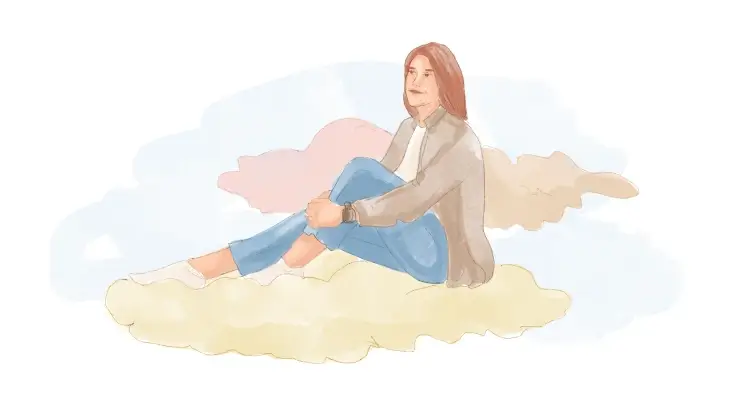
Why am I Getting Easily Distracted? Possible Reasons
As you already understand, there might be dozens of answers to the question, “Why is it so hard for me to focus?” We’ve already highlighted cognitive differences or some mental conditions that may influence it and discussed what attention span is.
But what if the reason is a bit simpler? There are dozens of routine things we don’t pay attention to that can influence our concentration. Let’s break down the most common ones further.
Lack of Sleep
Sleep deprivation has serious effects on brain functioning and the ability to focus and stay concentrated. Impressively, the research shows that 58.5 % of children with low sleep quality have a middle learning concentration level, and 30.2 % have a low concentration level.
Have you ever noticed how much more productive you are after having enough quality rest? That’s because your brain cells recharged overnight. Improved memory, learning skills, and decision-making are only some of the benefits of good sleep.
Viviana Greco, PhD also comments, “During sleep, the brain eliminates redundant or less crucial information. This process makes room for new memories to be learned the next day.”
You might say, “I get distracted easily, even after 8 hours of sleep. Moreover, why do I wake up tired after it?”
The hack is in good sleep hygiene and a routine. Tips are obvious but effective — go to bed and wake up at the same time, keep naps shorter than 20 minutes, and create a good environment so nothing wakes you up at night.
Poor Eating Habits
Again, that sounds too simple. But you are what you eat, and your focus also depends on your diet.
Do you face the question, “Why can’t I focus on anything?” Look at your plate. If there are many products that cause sudden fluctuations in blood sugar, this may be the reason.
Let’s enlist the most common habits that influence our cognitive functions and ability to concentrate.
- Irregular eating schedule
- Staying hungry for a long time
- Drinking too much coffee
- Eating a lot of fast food that includes simple sugar or unsaturated fat
So, the next time you say to yourself, “I can’t focus on studying or working,” it might be reasonable to revise your diet. Try replacing processed food with healthier variants and check the difference.
Unsupportive Environment
Do you remember the paragraphs about anxiety disorder and PTSD? In fact, for people without these mental states, this might work pretty similarly.
If there are real reasons that lead to constant worrying, there’s little chance that you won’t get easily distracted.
However, aside from daily anxious thoughts, people face other outcomes that lead to a lack of concentration.
- Chronic stress. While short-term stress enhances mental and physical performance, long-term stress negatively affects our cognitive functions. People experiencing chronic stress have difficulties with attention control and can’t focus on one thing, constantly shifting focus.
- Too challenging tasks. They make you feel frustrated before you start them. It’s like a complicated physics problem you want to avoid solving and hope to copy from a classmate.
Too boring tasks have the same effect. If you don’t know how to do something or find the process too monotonous, you’re likely to get easily distracted.
- Lack of work-life balance. It seems your life consists of busy days at work and trying to remember how many years ago you had a vacation. At the same time, constant overworking might lead to severe burnout and problems with concentration.
“Why can’t I focus on my work?” Maybe your brain has turned on survival mode and is saving energy for more important tasks, leaving you almost unable to concentrate.
- Moving without a roadmap. Finally, yet importantly. You may not know your “whys.” Our brains are hardwired to be “lazy” to save energy. So, if you don’t have a clear goal and don’t understand why you need to reach it, nothing will work.
“Why can’t I pay attention to my health, learn a new language, or read more books?” Think about whether you really want to do it. If you are not really interested in doing something and feel like you have to do it for reasons that don’t come from within you, you can have trouble focusing on the activity.
Bottom Line
Today, we unveiled the mystery of why you may have trouble focusing and what aspects can influence it. Now, it’s time to start discovering more about yourself and learning how to enhance your concentration.
Take a test from Breeze to gain more insights about your well-being and plan the first steps on your journey to happiness, productivity, and emotional resilience.
Disclaimer
This article is for general informative and self-discovery purposes only. It should not replace expert guidance from professionals.
Any action you take in response to the information in this article, whether directly or indirectly, is solely your responsibility and is done at your own risk. Breeze content team and its mental health experts disclaim any liability, loss, or risk, personal, professional, or otherwise, which may result from the use and/or application of any content.
Always consult your doctor or other certified health practitioner with any medical questions or concerns
Breeze articles exclusively cite trusted sources, such as academic research institutions and medical associations, including research and studies from PubMed, ResearchGate, or similar databases. Examine our subject-matter editors and editorial process to see how we verify facts and maintain the accuracy, reliability, and trustworthiness of our material.
Was this article helpful?

